MUNIMAP
Baltic Sea Munitions Remediation Roadmap
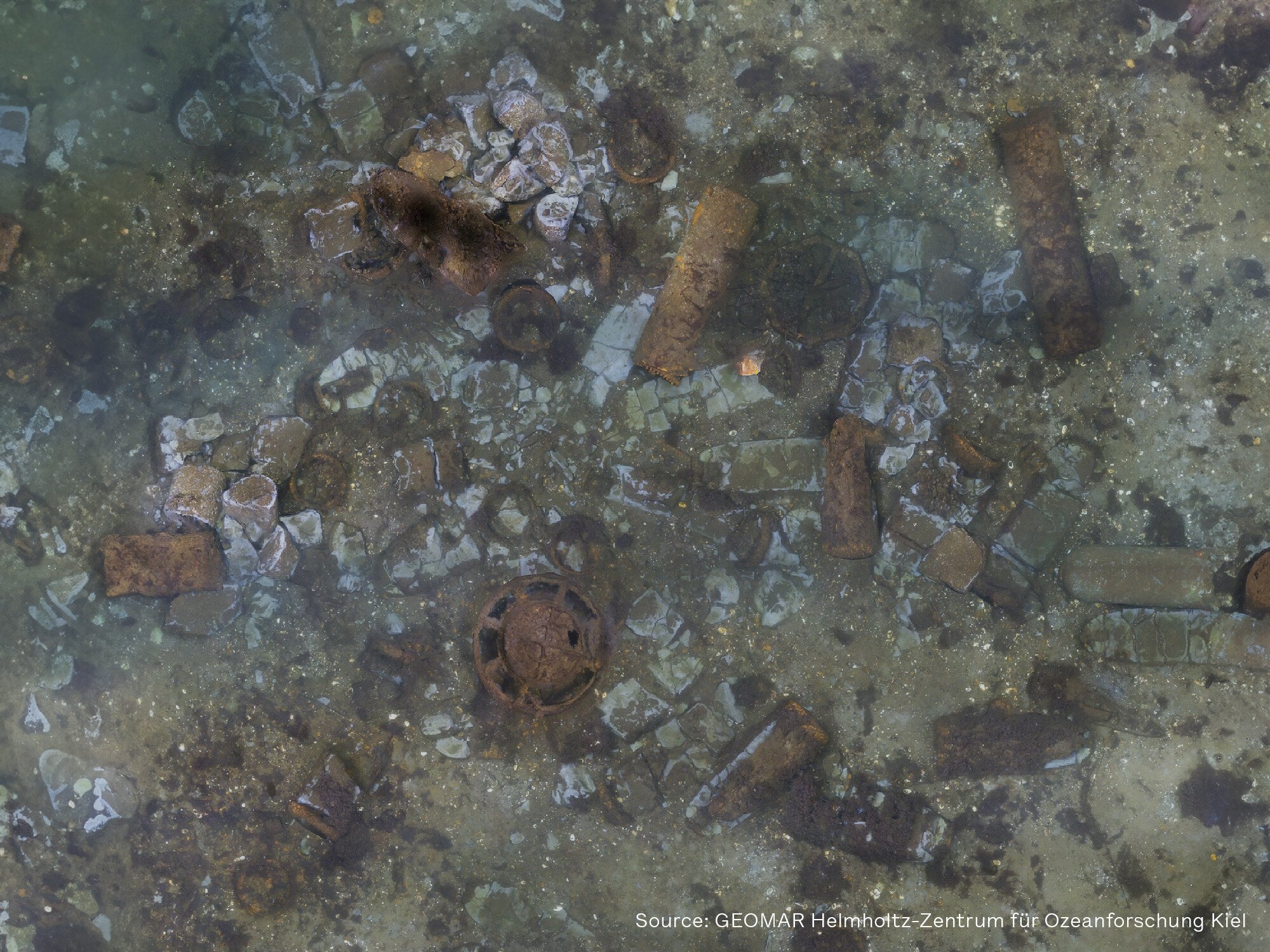
The Project MUNIMAP
Baltic Sea Munitions Remediation Roadmap
The historical pollution of the Baltic Sea and the Skagerrak by chemical and conventional munitions poses a serious threat to the marine ecosystem and an obstacle to the maritime economy. The authorities responsible for managing the marine areas face numerous obstacles in cleaning up these munitions. The first major obstacle is the irregular and sometimes contradictory legal regulations and policies related to dumped munitions. This is particularly the case in locations where environmental impacts can occur across borders or where the munitions contain chemical warfare agents. Responsibilities are either not allocated or are spread across different ministries. Combined with limited resources and high clean-up costs, this prevents proactive, long-term management of dumped munitions.
Furthermore, the authorities responsible for marine management need sound knowledge of the actual environmental risks in order to plan, prioritise and implement remediation measures. A corresponding data basis, such as the monitoring of munitions over a longer period of time, is currently lacking for the Baltic Sea region. In addition, methodologies for the monitoring, remediation and safe destruction of munitions have not yet been tested under the specific conditions of the Baltic Sea. Testing practicable, safe, effective and environmentally friendly methods would make it easier for decision-makers to assess important factors such as the time and cost of remediation.
Germany is the first country in the Baltic Sea region to set up a national programme for the clean-up and destruction of dumped munitions. The clean-up of the Bay of Lübeck is scheduled to begin as early as 2024. Poland is also planning a national pilot action programme for 2024. Although all countries in the Baltic Sea region are pursuing different approaches to remediation, this can only be carried out or at least controlled in a transnational, cooperative manner supported by several interest groups due to the cross-border extent.
Five central maritime use cases will be considered over the course of the project, from 1 January 2022 to 31 December 2024: Internet of Underwater Things (IoUT), Offshore Wind Energy, Munitions in the Sea, Biological Climate Protection, and Critical Infrastructure:
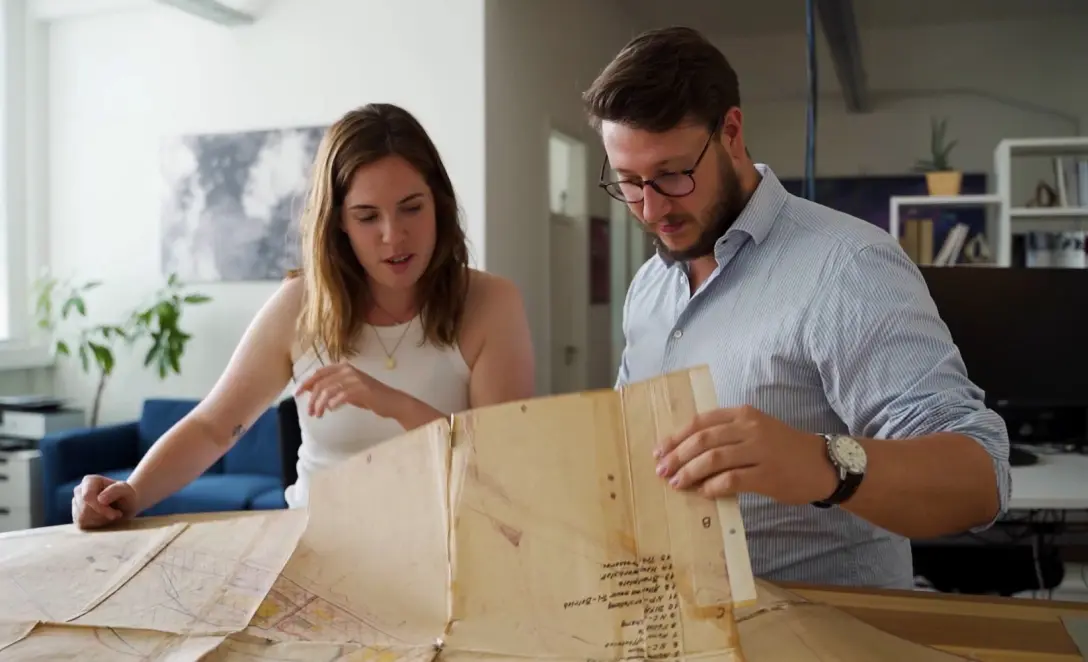
Project Specs
- Timeframe: March 1, 2024 - February 28, 2027
- Funding: €4 million
- Goal: Munimap aims to test innovative, cost-effective and environmentally friendly remediation methods to minimise the threat to the maritime ecosystem and the Baltic economy posed by historical munitions contamination.
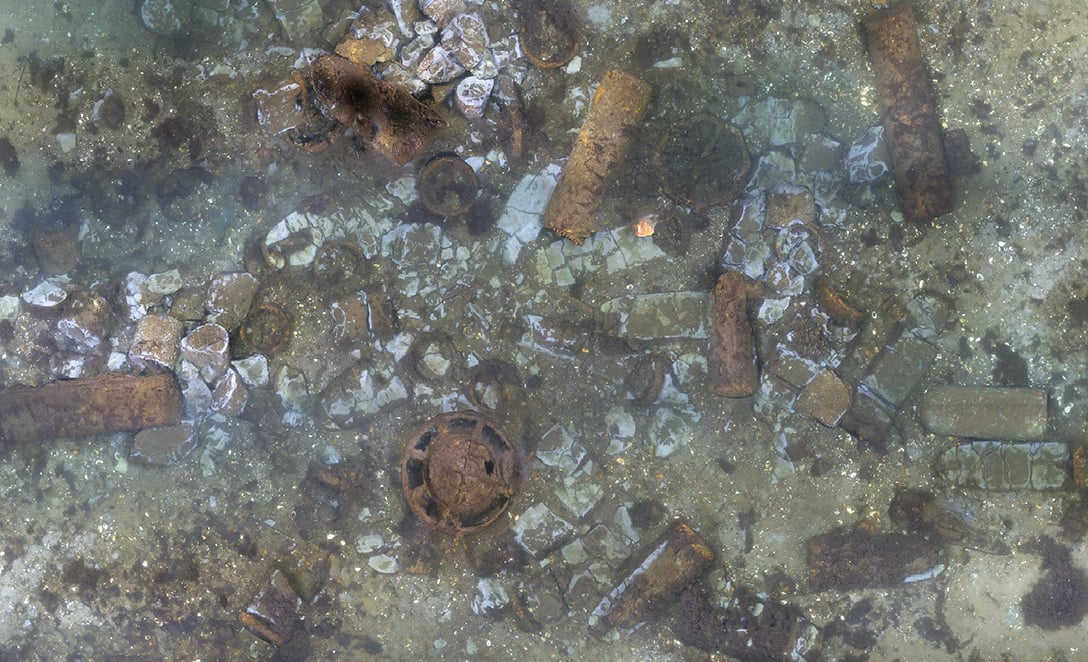
Project Summary
The MUNIMAP project will develop a modular roadmap for munitions remediation and promote co-operation with international partners. The project aims to test innovative, cost-effective and environmentally friendly remediation methods to minimise the threat to the maritime ecosystem and the Baltic economy posed by historical munitions contamination. Within three years, MUNIMAP will activate, accelerate and coordinate the national processes. Various elements for munitions remediation will be developed and evaluated together with the respective user groups. These include policy recommendations, IT solutions for prioritising sites, monitoring strategies and innovative, cost-effective and environmentally friendly remediation methods. In addition, MUNIMAP pilot activities will test several phases of the remediation processes, starting with the localisation and identification of munitions and risk assessment, through site prioritisation, remediation and monitoring, to the use and evaluation of the results.
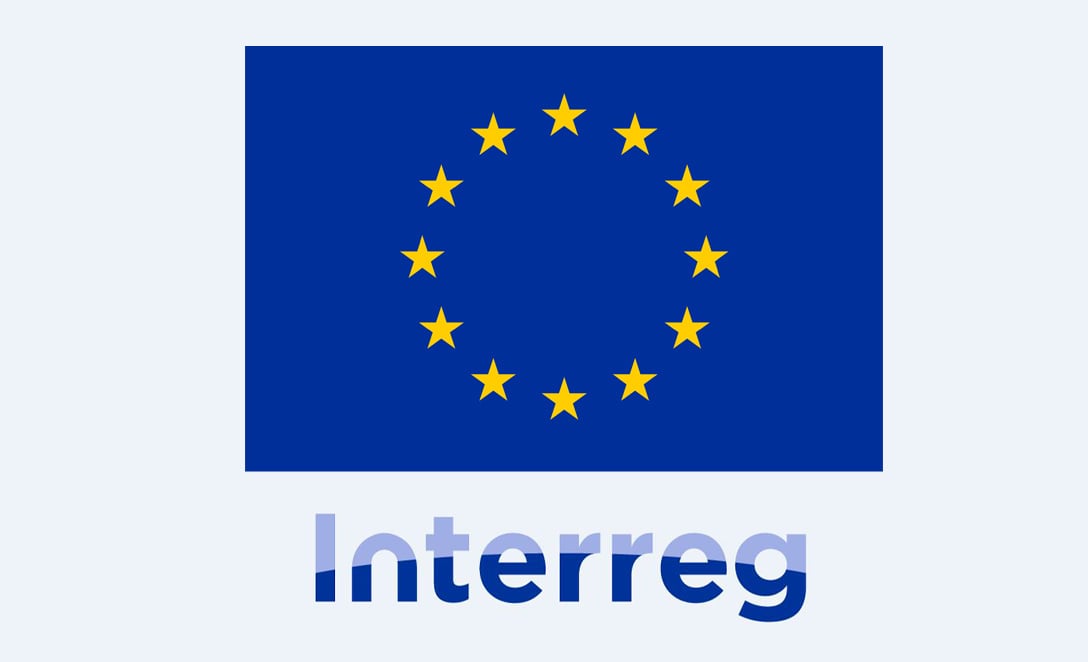
Funding
The MUNIMAP project is co-funded by the European Union (European Union's Horizon Europe Programme).
Our Contribution
MUNIMAP brings together an international team of scientists, administrative bodies and companies involved in the management and remediation of maritime munitions in the Baltic Sea region, including north.io.
north.io takes over the management of the collected data in MUNIMAP and develops a web-based application for decision-making that is customised to the requirements of the stakeholders and the political framework. The system extends the tools developed under DAIMON and DAIMON 2 and will store and analyse monitoring data in real time or near real time. To this end, north.io will coordinate development workshops and training sessions with users from science, public authorities and industry, thus enabling the project results to be scaled up and applied.
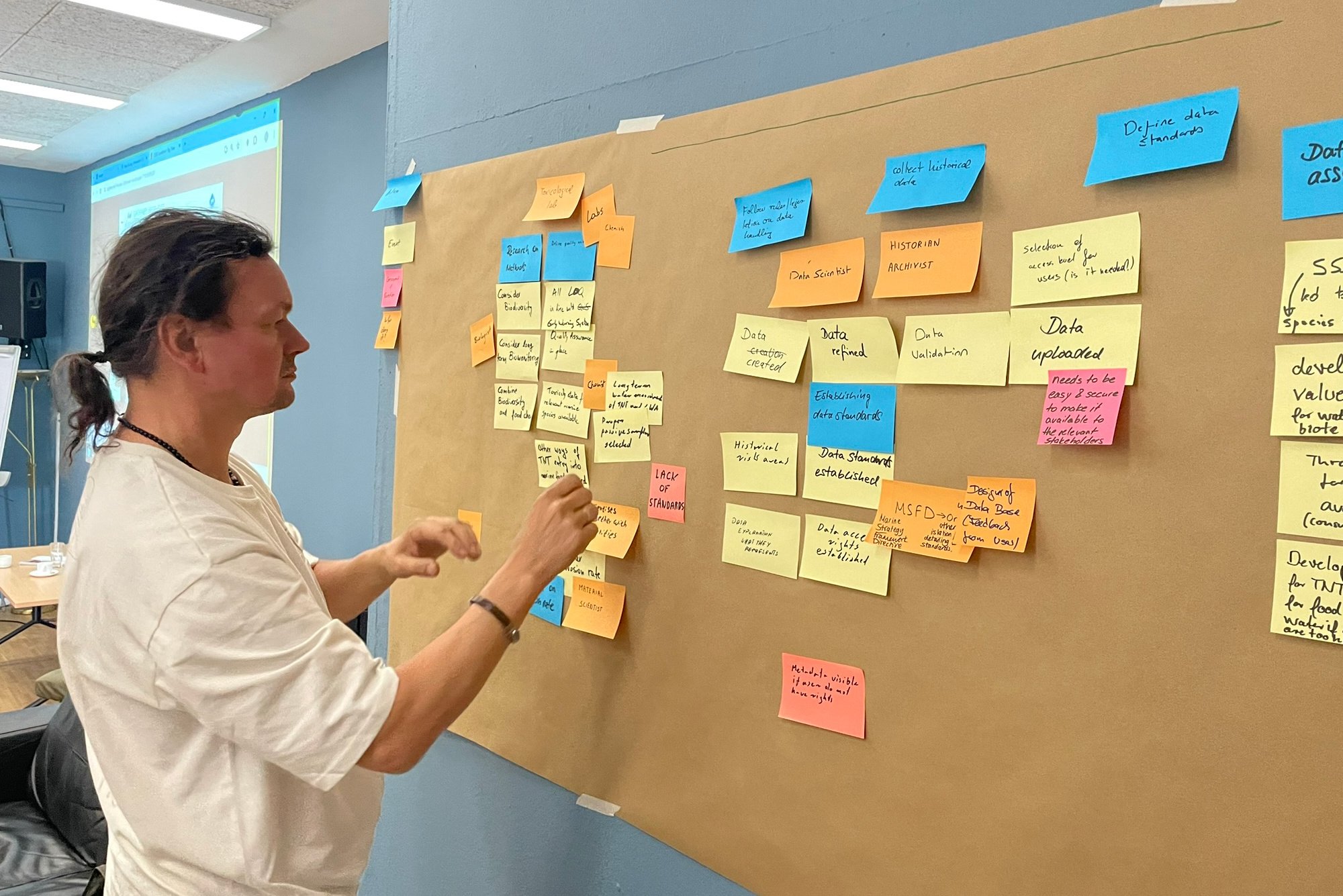
Project Partners
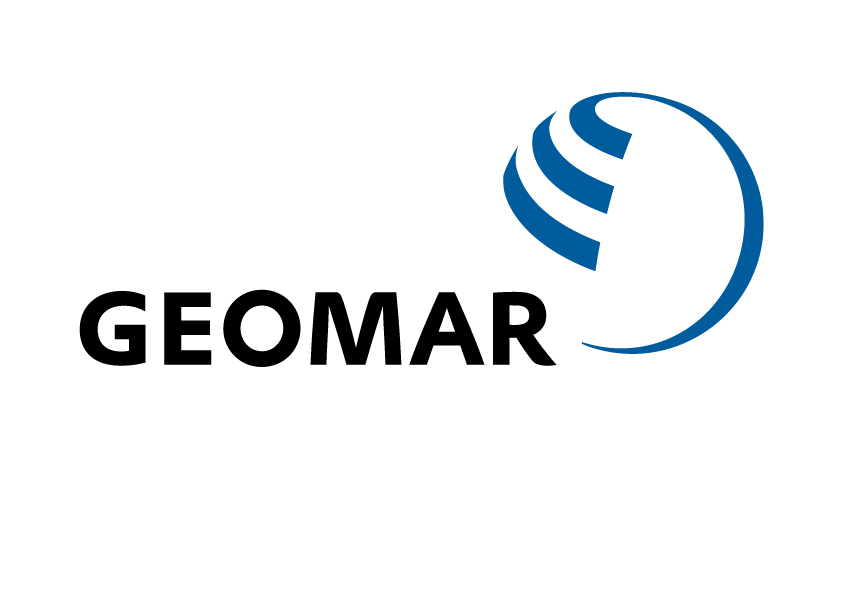

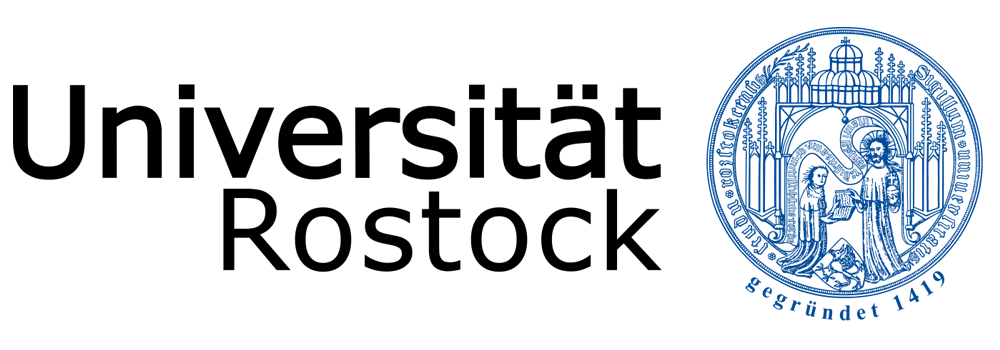

Associated Partners
Institute of Oceanology of Polish Academy of Sciences Polish Naval Academy Military University Of Technology
International Centre for Chemical Safety and Security German Environment Agency
Alfred Wegener Institute Helmholtz Centre for Polar and Marine Research north.io GmbH
KUM GmbH University of Helsinki Lithuanian Environmental Protection Agency
Latvian Institute of Aquatic Ecology University of Tartu
Council of the Baltic Sea States Baltic Marine Environment Protection Commission
Norwegian Defence Research Establishment Maritime Office Gdynia Aarhus University